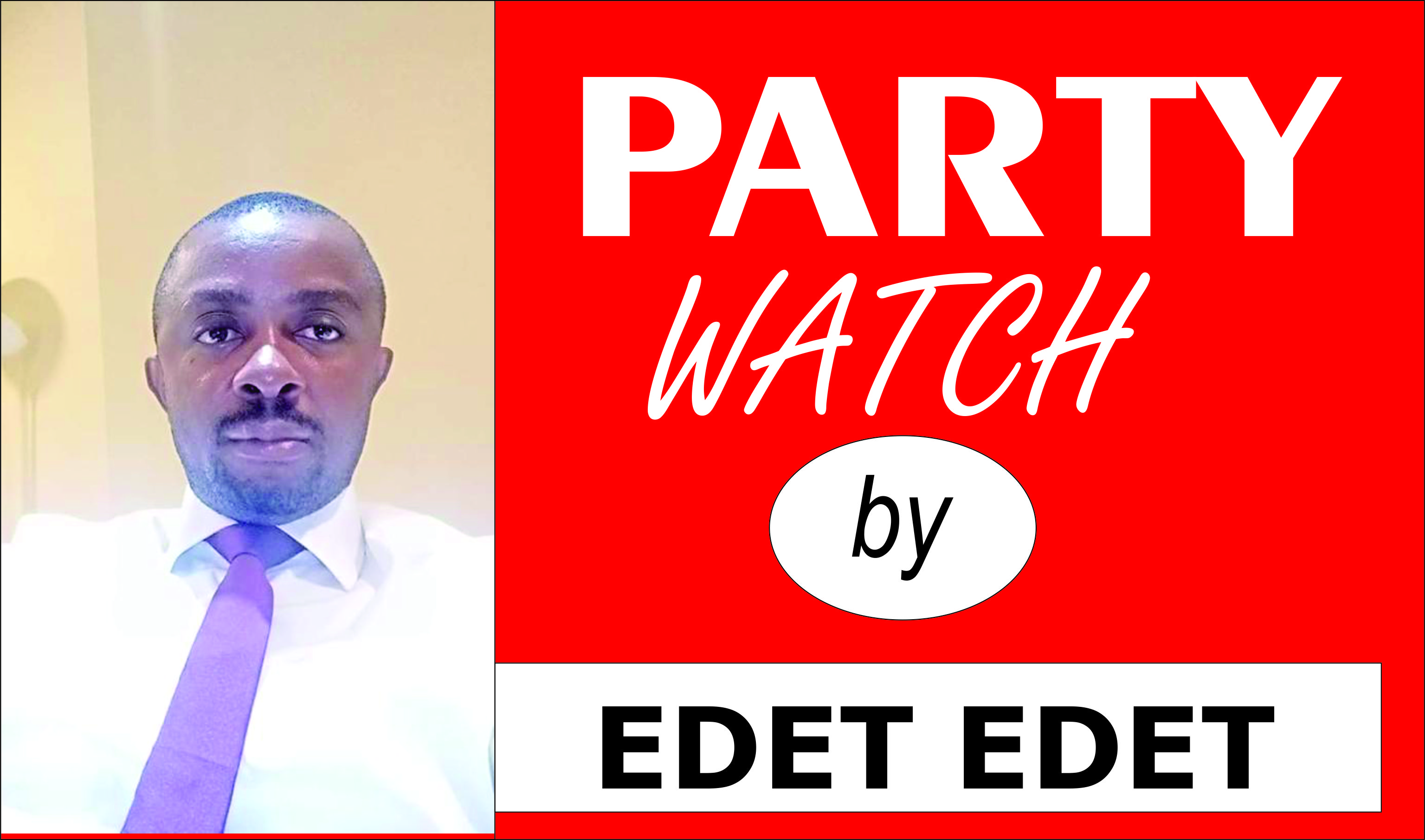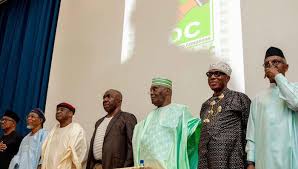Edet Edet.

I remember it clearly: the conference hall teeming with a kind of awkward energy only Nigerian politics can summon. Old rivals embraced like prodigal sons, political heavyweights beamed under the glare of cameras, and the green-white-green flags waved like they hadn’t since 1999.
The African Democratic Congress (ADC), once an obscure party trailing in the margins had suddenly become the most talked-about acronym in Nigeria’s political lexicon.
But as the media frenzy settles and the hashtag #NewCoalition fades from trending lists, a fundamental question echoes across motor parks, salons, university hostels, and WhatsApp groups: Is this a true patriot’s call or just another desperate power grab?
To seasoned political watchers, it was déjà vu. In 2013, aggrieved politicians from the PDP formed the All Progressives Congress (APC), swept the polls, and ended sixteen years of PDP dominance. But now, the APC is the establishment and ADC is positioning itself as the disruptor.
Still, many Nigerians are not fooled by rebranding. They’re asking: Where is the ideological glue that binds this alliance? Or is this just another game of musical chairs?
No one distilled public skepticism better than Yusuf Datti Baba-Ahmed, the vice-presidential candidate of the Labour Party in 2023, whose viral interview shook the coalition’s self-congratulation.
“I don’t yet see anyone in this coalition who can scheme and plan over 16 years,” he said bluntly. “Everyone seems only interested in their own candidacy.” He wasn’t exaggerating.
Bola Ahmed Tinubu’s political patience remains unmatched in Nigeria’s fourth republic. From building the Action Congress (AC), surrendering it to Atiku in 2007, backing Ribadu in 2011, investing heavily in Buhari’s eventual victory in 2015, and finally waiting till 2023 to seize the presidency, Tinubu played the long game.
“Less ambition, more strategy. More action, less talk,” Datti emphasized.
The comment struck a nerve. Because behind the coalition’s unity photos and fancy rhetoric lies an uncomfortable truth: No one in the ADC coalition is yet playing that kind of long game.
The ADC insists this is about Nigeria. Atiku called it a “national rescue mission.” Peter Obi said the country was “on the brink,” and that the coalition was needed to “restore hope.” Malami decried the APC’s “supervised decay of the state.” But for many citizens watching from the sidelines, it feels all too familiar.
The ruling APC, unsurprisingly, scoffed. Party spokesperson Bayo Onanuga labeled the new coalition “a band of the bitter and the power-hungry.” Presidential aide Festus Keyamo was more cutting, calling it a “coalition of ambition, not ideas.” Memes soon followed “Team Recycle” trended for two days on social media.
And the criticism didn’t only come from outside. Dumebi Kachikwu, the ADC’s own former presidential candidate, accused party elites of betrayal. “They are hijacking the party,” he said in a scathing statement. “This is not about Nigeria. It’s about ambition.” That’s the tension: Is ADC building something lasting or simply creating a launchpad for displaced politicians eyeing 2027?
Let’s be honest: Nigerians are desperate for alternatives. With inflation over 30%, the naira wobbling at historic lows, unemployment biting, and insecurity still rampant in the North and Southeast, even the most politically indifferent citizen is yearning for change. This is what made Peter Obi’s 2023 movement so powerful: a campaign powered by young Nigerians, built around ideals, and untainted by old school politics. Though Obi didn’t win, he disrupted the status quo in ways few thought possible.
But here’s the danger: Repackaging the same old faces under a new banner won’t fly. The youths that marched in Obidient rallies are watching closely and they can smell political opportunism from a mile away.
If Atiku runs again for the seventh time, many will simply roll their eyes. Nigerians may respect his consistency, but they are growing weary of his ambition. For this coalition to be taken seriously, several things must happen and fast: Atiku, Obi, and others must decide whether they are in this to lead or to build. If everyone insists on flying the flag, the coalition will collapse under the weight of their egos.
Being “anti-APC” is not a manifesto. What are the coalition’s economic blueprints? How do they plan to tackle insecurity? What are their plans for youth unemployment, energy transition, and regional integration?
Peter Obi’s 2023 movement was driven by Gen Z and millennials. If the ADC is filled with only yesterday’s men, it risks becoming a gerontocratic conference. There must be space for new faces and new ideas.
Politics is not a sprint. It’s a marathon. If ADC leaders are serious, they must commit to a 10-15-year roadmap, not just the 2027 race. Can they step aside, fund others, build structures, and wait, as Tinubu did?
ADC’s rise may be the beginning of something new or just another chapter in Nigeria’s endless cycle of political musical chairs. The stakes are high. Insecurity has displaced over 3 million Nigerians. Youth unemployment hovers around 40%. Over 90 million Nigerians still live in multidimensional poverty.
The country doesn’t need another “Third Force” experiment that fizzles after the election. It needs leaders willing to sacrifice ambition for the greater good to build something that outlives them. Because as Datti Baba-Ahmed rightly said, talk is cheap.
The answer isn’t in the headlines. It’s in the choices ADC leaders make in the next 18 months. Will they subdue their egos, unify their platforms, and build for the future? Or will they rush to 2027, squabbling over who gets to wear the crown? Nigeria has been burned before. And this time, the people are watching.
Do you have news for us? Or feedback? Reach us at info@theplenary.com.ng, on WhatsApp: 08126247308, 08050636363

